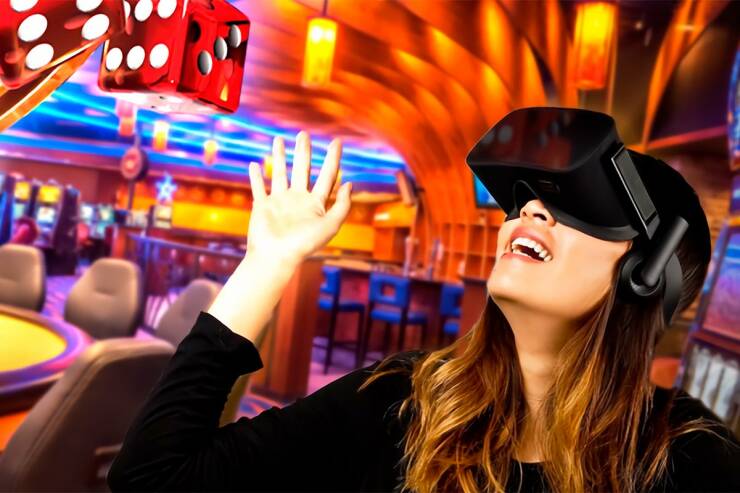
The casino industry has always been at the forefront of innovation, consistently raising the bar with its latest gaming technologies. However, with the advent of emerging technologies, the world of gaming is set to evolve in ways that are beyond what was ever thought possible. The casino industry is not only embracing these technologies but is also driving innovation by spearheading research and development in these emerging fields.
From virtual reality to artificial intelligence, from biometrics to blockchain, casinos are leveraging every possible tool to take the gaming experience to new levels of immersion and excitement. Moreover, with the increasing popularity of cryptocurrencies, casinos are now offering their customers the ability to make deposits and withdrawals in the form of digital currency. This allows players to remain anonymous while gaming, allowing them to maintain a level of privacy that would otherwise not be possible.
Virtual Reality and Augmented Reality
Virtual Reality (VR) and Augmented Reality (AR) are emerging technologies that offer a glimpse into the future of gaming in the casino industry. Virtual reality is a computer-generated simulation that allows users to experience a simulated environment, while augmented reality adds computer-generated elements to the real world. These technologies have already begun to revolutionize gaming, providing players with immersive experiences that make them feel as though they are physically present in the game. Here are the advantages that casinos can experience by utilizing these technologies:
• More realistic gaming environments with improved graphics and sound
• Increased player engagement through immersive experiences
• Ability to test out new games before they are released onto the market
• Enhanced customer loyalty as players feel more connected to their favorite casino games
Artificial Intelligence and Machine Learning
Artificial intelligence (AI) and machine learning (ML) are two emerging technologies that are set to revolutionize the casino industry in the near future. AI is already being implemented in various areas of the industry, for example, in the development of chatbots to assist with customer service queries and in the analysis of player data to improve game design and personalize player experiences. Machine learning, on the other hand, focuses on the development of algorithms that allow computers to learn and improve from data without being explicitly programmed.
Blockchain Technology
One of the main advantages of blockchain technology for the gaming industry is the heightened security and transparency it provides. Because blockchain is decentralized, there is no middleman involved in transactions, which eliminates the need for third-party verification. This makes it much harder for hackers to access the data and alters it, which can ensure the integrity of the data.
Additionally, blockchain technology can create a more transparent and accountable system for money transfers, as every transaction is recorded on a public ledger that cannot be altered. The use of blockchain technology can help to build trust with customers and reduce the probability of disputes in the online gaming industry.
Cloud Gaming
This type of gaming allows players to access and play games through a remote server rather than through a console or personal computer. With the increasing availability of stable and fast internet connections, cloud gaming is expected to become more popular in the coming years. It allows players to access games on multiple devices without worrying about storage or processing power requirements, making it more accessible for casual gamers.
Additionally, cloud gaming also allows for seamless updates and patches, as they are automatically delivered through the remote server. However, with the widespread adoption of cloud computing, it is expected that cloud gaming will be a game-changer for the online gaming industry.
In Conclusion
The casino industry is undergoing a significant shift in terms of technology integration into gaming. Emerging technologies like blockchain, virtual reality, and AI are transforming the gaming experience, making it more immersive, secure, and personalized than ever before. While there are still challenges that the industry needs to tackle, such as regulatory compliance and the need to balance technology with human interaction, the future of gaming looks promising.


